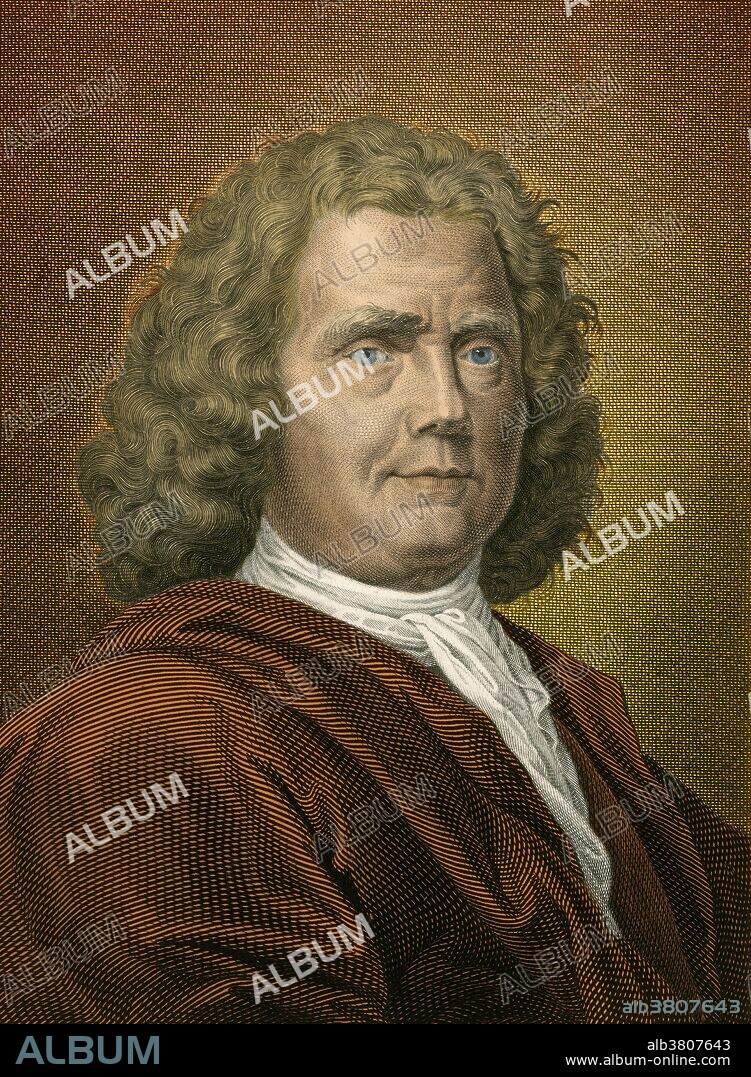alb3807643
Herman Boerhaave, Dutch Chemist and Physician

|
Zu einem anderen Lightbox hinzufügen |
|
Zu einem anderen Lightbox hinzufügen |



Haben Sie bereits ein Konto? Anmelden
Sie haben kein Konto? Registrieren
Dieses Bild kaufen.
Nutzung auswählen:

Titel: Herman Boerhaave, Dutch Chemist and Physician
Untertitel: Siehe automatische Übersetzung
Herman Boerhaave (December 31, 1668-September 23, 1738) was a Dutch botanist, chemist, humanist and physician. He is regarded as the founder of clinical teaching and of the modern academic hospital. His reputation increased the fame of the University of Leiden, as a school of medicine. All the princes of Europe sent him pupils, who found in this skillful professor not only an indefatigable teacher, but an affectionate guardian. In 1714, when he was appointed rector of the university and in this capacity introduced the modern system of clinical instruction. Four years later he was appointed to the chair of chemistry. His 1724 textbook Elementa chemiae (Elements of Chemistry) was an outgrowth of his lectures at the University of Leyden, in which he outlined influential theories on heat, fire, and expansion of bodies. The publication of his textbook is said to mark the start of the modern concept of chemistry. He is considered one of the pioneers in physical chemistry, for introducing quantitative methods into the measure of temperature and mass and for carrying out some of the first calorimetric research. In 1728 he was elected into the French Academy of Sciences, and two years later into the Royal Society of London. In 1729 declining health obliged him to resign the chairs of chemistry and botany; and he died, after a lingering and painful illness in 1738 at the age of 69.
Kategorie: WISSENSCHAFT
Bildnachweis: Album / Science Source / New York Public Library
Freigaben (Releases): ? Modellfreigabe: Nein - ? Eigentumsfreigabe: Nein
Rechtefragen?
Rechtefragen?
Bildgröße: 2923 × 3984 px | 33.3 MB
Druckgröße: 24.7 × 33.7 cm | 1150.8 × 1568.5 in (300 dpi)
Schlüsselwörter: 18. JAHRHUNDERT • 18. JH. • BERÜHMT • BERÜHMTE PERSÖNLICHKEIT • BOTANIK • CHEMIE • CHEMIKER • EUROPAEER (F M) • EUROPAEER • EUROPÄER (F M) • EUROPÄER • EUROPÄISCH • ILLUSTRATION • ILLUSTRATIONS • MANN • NOTABEL • PERSON • PERSöNLICHKEITEN • PERSÖNLICHKEITEN • PORTRAIT • PROMINENZ • WISSENSCH.: CHEMIE • WISSENSCHAFT


 Pinterest
Pinterest Twitter
Twitter Facebook
Facebook Link kopieren
Link kopieren Email
Email
